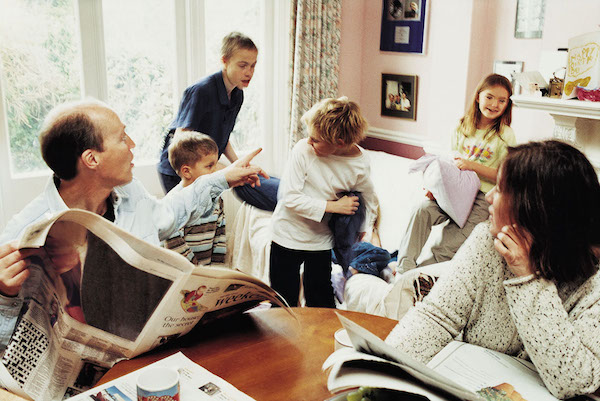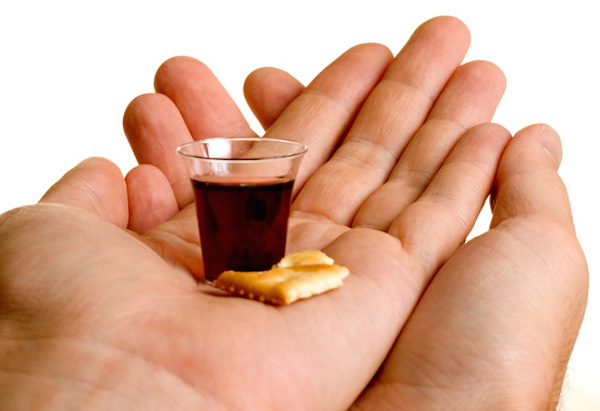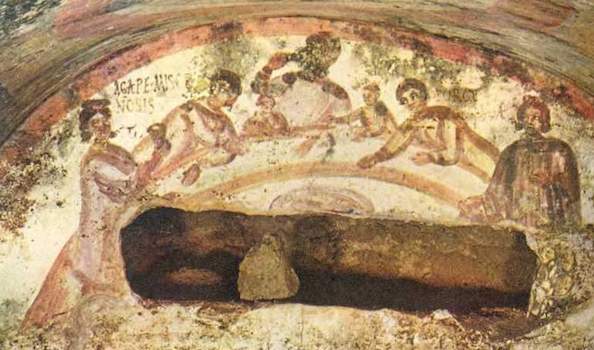Non-Catholics receiving Communion?

Reception of the Holy Eucharist has recently been the subject of scrutiny in the media, prompted by some of the discussions taking place in the “Synod on the Family”. In my own life, Holy Communion was also the subject of a recent incident concerning a friend of mine.
You see, a friend recently went to a Catholic conference together with a Protestant. Being a Catholic event, there was, of course, the celebration of the Eucharist. When time for Mass came, the non-Catholic was upset that she couldn’t go up to receive the Eucharist. She couldn’t do this because, under ordinary circumstances, the Catholic Church does not allow non-Catholics to receive Holy Communion.
“…members of those churches with whom we are not yet fully united are ordinarily not admitted to Communion”
– United States Conference of Catholic Bishops, “Guidelines For communion”
In this post I would like to provide a summary of what I say when I’m asked why it is that the Catholic Church doesn’t allow anyone to receive Holy Communion (the Eastern Orthodox Churches have similar rules for similar reasons). As usual, this won’t be an exhaustive theological explanation, simply a rough outline of the kind of thing I personally say when I’m asked to explain this particular Catholic teaching.

This is a family issue
The question of inter-communion is a sensitive subject. It must be handled delicately, since it pertains to a family matter, an issue between brothers and sisters in the Christian faith. If you haven’t read it before, it might be an idea first to read the Ecumenical Apologist post since in that article I try to explain my approach in areas like this. A careful balance must be struck, both to affirm the things which unite all Christians, but at the same time to present the fullness of Catholic teaching. To do otherwise would be to do a disservice to all.
It is my hope that any non-Catholic reading this article will understand that I write this post in hopeful anticipation of the day when all Christians can gather around the same altar and finally be reunited in sacramental bonds of unity. On that day, Heaven will rejoice.

When I thought differently…
Those of you who know my story will know that I attended a non-Catholic congregation for several years. At that time I was rather puzzled by Catholic teaching which stipulated that…
1. Non-Catholics should not receive communion when attending Mass
2. Catholics should not receive communion at a non-Catholic service
It seemed to me to be rather cold-hearted and elitist to deny my Protestant friends access to the Eucharist if they visited my parish. This stood in stark contrast to the welcoming invitation to communion which I found among the non-Catholic congregations I visited. During my time in that Protestant congregation, on the occasions in which the Lord’s Supper was celebrated, I chose to receive communion. I knew that Catholic teaching said that I shouldn’t, but I didn’t care and I did it anyway.

Come one, come all?
I first started to reassess my position on intercommunion after attending a particular communion service at a Protestant Church. As communion was about to begin, the pastor said:
“We’d now like to welcome you all up to communion, whether you belong to this particular church or you’re visiting from another denomination…”
This invitation made me really happy. At least here there weren’t those silly rules about Holy Communion! However, what he said next really unsettled me…
“…and even if you’re not yet a baptized, if you’re moving towards the Lord, if you’re moving in that direction of faith in Jesus, please come up and receive”
Now, I thought it was great that they opened up communion to Christians of other denominations but…to those who weren’t yet Christians? To those who weren’t baptized? Wasn’t that…too much? It felt a bit, well, sacrilegious. On what basis did I make that distinction? That morning I was playing with the worship band and, from my vantage point from the front of church I could see everyone come up for communion. I watched with conflicted, troubled thoughts.
This event set into motion for me a re-examination of my opinion concerning the Eucharist, Communion and the teaching of the Catholic Church…

What did the Early Church do?
When I started reading the works of the Early Church, I was surprised to find that almost as soon as we hear about the Eucharist, we are told that not just anyone could receive it. In about AD 150, the great apologist and courageous martyr, Justin, wrote the following when describing the Church in Rome:
This food we call [the Eucharist], and no one is allowed to partake but he who believes that our doctrines are true, who has been washed with the washing for the remission of sins and rebirth, and who is living as Christ has enjoined… – Justin Martyr, First Apology, Chapter 66
In a single sentence I saw that what took place at my evangelical congregation would never have happened in Justin’s Second Century Roman congregation. Justin wrote that the conditions for reception of the Eucharist were:
1. United belief
“…who believes that our doctrines are true”
2. Baptized
“…who has been washed with the washing for the remission of sins and rebirth”
3. Free from serious sin
“…who is living as Christ has enjoined”
There is much more that we could say about the Early Church and the Eucharist and I will refer again to the Fathers at a later point, but for now it will suffice to conclude that the Early Church did, in fact, place very specific restrictions on the reception of the Eucharist.

On Thursday, in the second and final part of this series, I’ll address the reasons why the Catholic Church has a closed communion.
Part 1 | Part 2
Pingback: This Week’s Best in Catholic Apologetics | DavidLGray.INFO